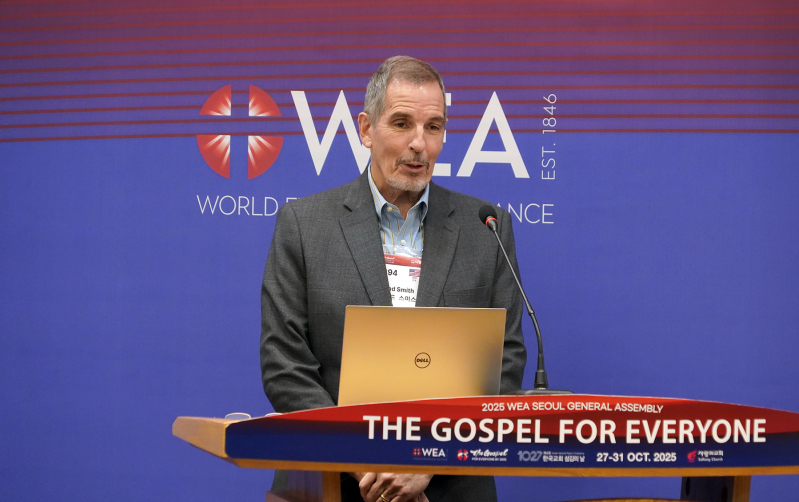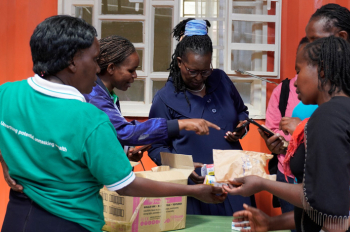
The World Evangelical Alliance (WEA) General Assembly in Seoul has gathered 850 participants from 124 nations, representing one of the most globally diverse gatherings in the evangelical movement. The figures were shared during a press briefing on Tuesday, Oct. 28, by Dr. Brad Smith, WEA Director of Alliance Engagement and media spokesperson for the event.
Originally, more than 1,500 participants had registered for the Oct. 27–31 assembly, but travel and visa challenges reduced the final attendance.
Smith said that the demographic composition of the assembly mirrors the broader reality of global Christianity today. “We learned yesterday that 70% of the Christians in the world are from the southern and eastern areas. And we have 71% at this conference from those regions,” he told journalists. “So we reflect what’s happening in the world.”
Of the 850 delegates present, 36% came from Asia and 21% from Africa, with additional representation from Europe (12%), North America (17%), Latin America (5%), the South Pacific (3%), the Middle East and North Africa (3%), Central Asia (1.5%), and the Caribbean (1.5%).
Commenting on the two largest groups, he added Africa sent 182 participants from 29 countries, including Kenya (27%), Burundi (12%), Rwanda (12%), South Africa (9%), and Cameroon (5%). Asia’s 299 participants from 21 countries included the largest contingents from India (29%), Pakistan (12%), the Philippines (11%), Nepal (9%), and Singapore (6%).
Smith noted that the average participant age of 45 years marks a generational shift. “If you have followed the World Evangelical Alliance, that’s a lot younger than it has been in the past,” he said. “We are excited to see how much this general assembly reflects what God is doing among evangelicals around the world.”
Serving a global family
Describing the WEA’s structure and mission, Smith emphasized that the alliance operates as a global family built around the strength of its national networks. “The core of our work is building National Evangelical Alliances,” he explained. “The purpose of the World Evangelical Alliance is to be an umbrella to equip these national alliances.”
He elaborated on how the WEA’s structure extends from the global level to the grassroots of local churches. “Another way to look at it is that the World Evangelical Alliance serves nine regional alliances. Those nine regional alliances serve their national alliances. Each national alliance has members — denominations, churches, and key leaders in their country,” Smith said.
“So the national alliances serve the denominations, who in turn serve local churches, and the local churches equip the saints for works of service throughout the church scattered,” he continued. “We are serving those on the front lines of the gospel — in churches and all sectors of society — helping them to present, proclaim, and demonstrate the gospel.”
Calling the General Assembly “a family gathering for the family to come and talk to each other,” Smith said the week is about more than fellowship. “They’re all working on how they can improve their national alliances to become better and better in representing the gospel in their nations,” he said.
“The Church gathered from every region of the world to seek God’s direction together — a truly global body sharing one faith and one mission.”
Click here for CDI's full reporting from the WEA General Assembly.






